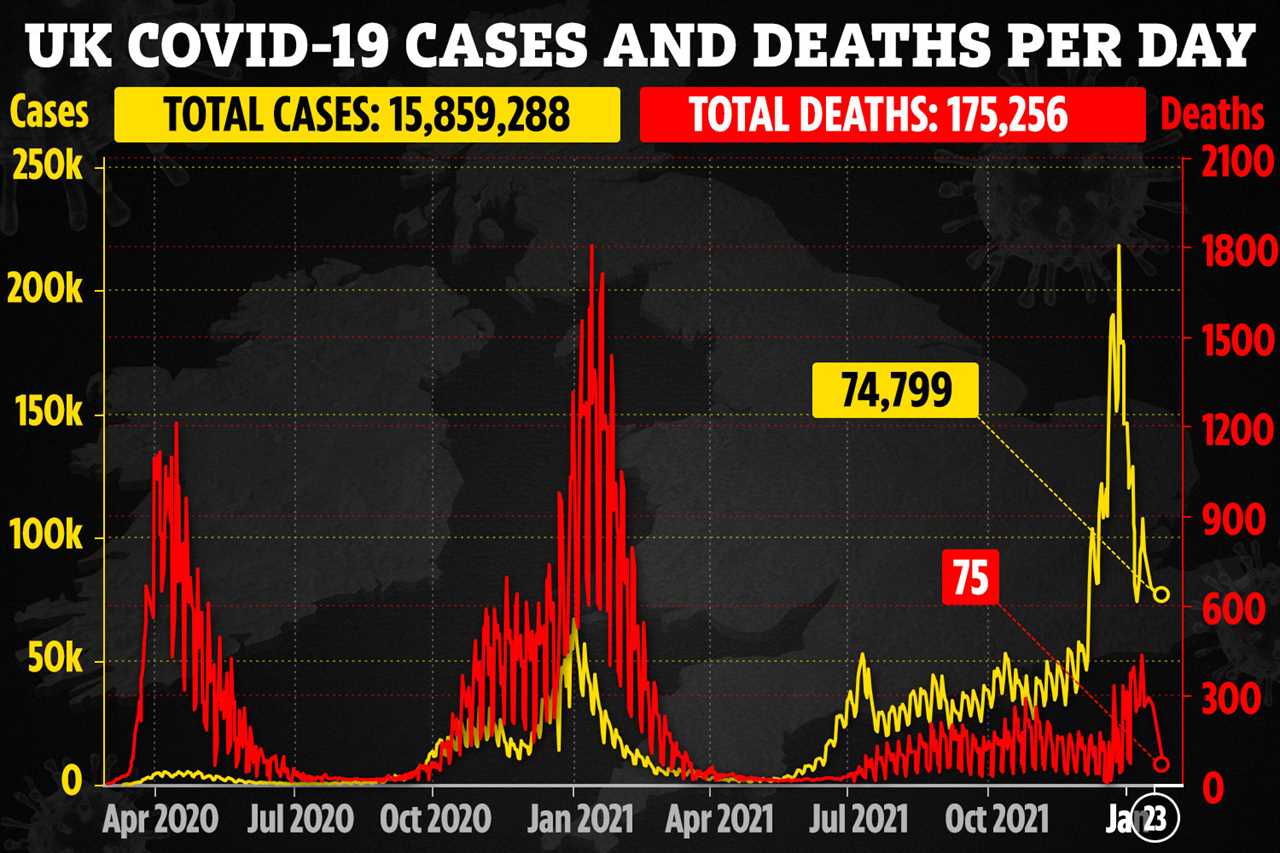A NEW Covid variant has emerged in the UK – with over 400 confirmed cases.
It is a sub-variant of Omicron, which appears to be able to spread faster but isn’t thought to be any more severe.

It is known as BA.2, and has many of the same mutations as Omicron – with current case rates very low.
A string of positive studies show Omicron is milder than other strains in the vaccinated – with vaccines thought to still be effective against this new variant, BA.2.
The latest data from UKHSA found it appears to be able to spread faster than original Omicron, but more research is needed to be certain – with it now officially a variant under investigation.
Experts have said there is little to be concerned about at the moment, and crucially, there is no evidence of it being any more severe.
Health and Social Care Secretary, Sajid Javid, said: “We are learning to live with this virus – and thanks to our world-leading surveillance system we can rapidly detect and carefully monitor any genetic changes to Covid-19.
“As we cautiously return to Plan A, I encourage you to give yourself and your loved ones the best protection possible and Get Boosted Now.”
What is the new variant?
BA. 2 originally emerged in early December, not long after Omicron started spreading around the world.
The new sub-variant was spotted in South Africa, Australia and Canada – initially found in a South African man who had travelled from Gauteng, a hotbed in the Omicron outbreak.
However the latest data shows it has actually been seen in many countries since November and is nowhere near to outcompeting Omicron.
The first samples were submitted from the Philippines, with 40 countries now having logged 8,040 sequences of the sub-variant.
There have now been 426 cases of BA.2 in England since December 6, with London top of the table with 146.
But data from the Sanger Institute up to January 8, shows an estimate 1,641 UK cases – as tests are thought to only pick up about ten per cent of the true total.
Is it a worry?
Scientists have said it’s nothing to be concerned about at the moment.
BA.2 is missing a key mutation that allows labs to discover and then flag up cases, which could make it harder to track.
Scientists have suggested it could be more transmissible, so it could be trickier to spot quite how it spreads.
But studies from Denmark, where the sub-variant makes up half of all Omicron cases, shows no difference in hospitalisation risk.
It doesn’t seem to cause a more serious illness than original Omicron – which is more cold-like for most people, especially the vaccinated.
Health officials in Denmark, who have seen the most cases of BA.2 so far, say Covid vaccines are thought to still be as effective.
What have experts said?
Dr Meera Chand, Covid-19 Incident Director at UKHSA, said: “It is the nature of viruses to evolve and mutate, so it’s to be expected that we will continue to see new variants emerge as the pandemic goes on.
“Our continued genomic surveillance allows us to detect them and assess whether they are significant.
“So far there is insufficient evidence to determine whether BA.2 causes more severe illness than Omicron BA.1, but data is limited and UKHSA continues to investigate.
“Case rates remain high throughout the UK and we must remain vigilant and take up vaccinations. We should all continue to test regularly with LFDs and take a PCR test if symptoms develop.”
Dr Tom Peacock, a virologist at Imperial College London, said early evidence from suggested there was no difference in severity.
He tweeted: “There is likely to be minimal differences in vaccine effectiveness against BA.1 and BA.2.
“*Very* early observations from India and Denmark suggest there is no dramatic difference in severity compared to BA.1. This data should become more solid (one way or another) in the coming weeks.
“So how worried should we be? Those working in sequencing/surveillance should definitely be keeping a close eye on BA.2 (and very likely already are!).
“Personally, I’m not sure BA.2 is going to have a substantial impact on the current Omicron wave of the pandemic…”







